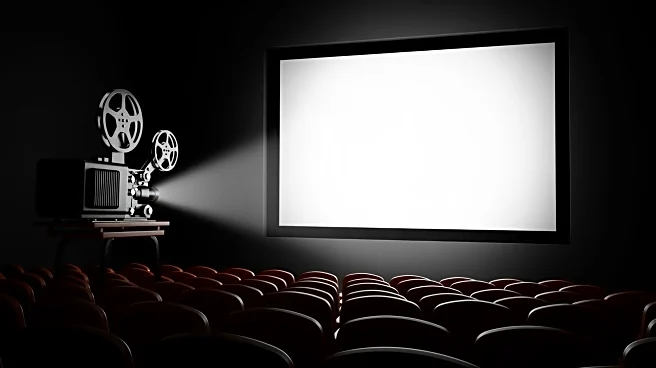What's Happening?
San Quentin Rehabilitation Center is hosting its second annual film festival on October 23-24, featuring works by currently and formerly incarcerated filmmakers. The festival will include 35 official selections,
such as narrative and documentary shorts, judged by a panel of industry professionals and inmates. The event is part of a broader $239 million overhaul of the facility, aimed at transforming it from a maximum-security prison into a center for rehabilitation and education. The festival highlights the creative talents of inmates and provides them with a platform to showcase their work, fostering a sense of purpose and redemption.
Why It's Important?
The San Quentin Film Festival represents a significant shift in how correctional facilities approach rehabilitation. By providing inmates with opportunities to engage in creative and educational activities, the festival aims to reduce recidivism and improve community safety. The initiative aligns with broader efforts to incorporate successful rehabilitation practices from countries like Norway, which have low recidivism rates. The festival not only offers inmates a chance to transform their lives but also challenges societal perceptions of incarcerated individuals, showcasing their potential as artists and contributors to cultural narratives.
What's Next?
The festival is expected to continue growing, with plans to expand its offerings and impact. The revamped San Quentin facility will include classrooms for coding and media production, set to be unveiled in January. State officials are committed to enhancing rehabilitative opportunities, with the festival serving as a model for similar programs in other correctional facilities. The success of the festival could influence public policy and encourage further investment in prison education and rehabilitation efforts, potentially leading to broader systemic changes in the U.S. criminal justice system.
Beyond the Headlines
The festival underscores the ethical and cultural dimensions of incarceration, highlighting the transformative power of art and education. It challenges the stigma associated with former inmates, promoting a narrative of redemption and second chances. The initiative also raises questions about the role of prisons in society and the importance of providing meaningful opportunities for personal growth and development. As the festival gains recognition, it may inspire similar programs nationwide, contributing to a shift in how society views and supports incarcerated individuals.









